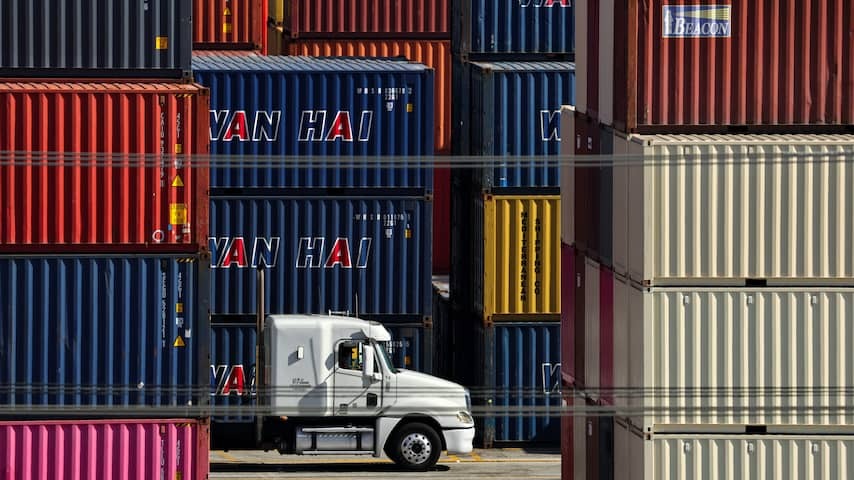
Donald Trump postponed the deadline for a trade agreement with the EU to August 1st on Tuesday. This is the second time the American president has come up with a levy pause. Readers wonder: does that postponement make sense?
It is not at all surprising that there are no concrete agreements yet, says Luc Aben. He is chief economist at Van Lanschot Kempen and analyzes the financial markets worldwide. “Concluding trade agreements is a very complex process. Normally that takes years.” That Trump initially wanted to have an agreement in April is “actually impossible”.
It was also not realistic that there would be clarity before the deadline of July 9, Aben states. A comprehensive agreement is also unlikely before August 1. It is of course guesswork, says the chief economist. “But I would be surprised if there are definitive, regulated agreements by then.”
It is more likely that there will be some general agreements, as is now the case with the United Kingdom, Vietnam and China. In recent weeks, the US has concluded a limited agreement with those countries in which a few basic agreements have been made. Details are not yet available.
According to Aben, European financial markets are now cautiously waiting. They will have to deal with Trump’s volatility for a long time to come. They were surprised by this in April: the market reacted strongly to his list of levies and share prices fluctuated considerably.
That looks different now, a few months later. After Trump’s vague statements, the financial markets are still keeping a low profile, Aben sees. Albert Jan Swart, sector economist Industry and Transport & Logistics at ABN AMRO, agrees. “Share prices have remained fairly stable,” he notes. “I think investors had expected a postponement. And that is why they have not reacted strongly.”
Investors are increasingly anticipating Trump’s unpredictability, the two experts say. Aben: “They base themselves on the recent past. After very tough language and high tariffs, Trump adopted a more moderate stance.”
For the EU, the postponement has positive and negative sides, Swart sees. Now that the levies announced on April 2 have been postponed again, most countries have a relatively favorable import levy of 10 percent. If Trump introduces the announced tariffs, most sectors will face a levy of 20 percent. That would be “very bad for European exports and international trade,” Swart states.
That Trump is now temporarily using lower levies is “positive in itself,” says Swart. However, high levies still apply to certain products, such as cars and car parts (25 percent) and steel and aluminum (50 percent). The European Commission is committed to lowering those levies, but that requires an agreement.
Ursula von der Leyen, the President of the European Commission, wants to lower the further import levies for the EU, which are now at 10 percent, to zero percent. It is also important for companies that there is clarity quickly: the unrest is causing them to postpone their investments.
Whether there will be a ready-made agreement on August 1 is difficult for Swart to say. “According to the Financial Times, the European Commission thinks that a preliminary agreement could be reached this week. But then there will still be negotiations on all sorts of details.”
However, the EU is an important trading partner for the US. As a result, the bloc has a lot of weight in the negotiating balance. “I don’t dare to estimate exactly what Trump wants or is going to do,” Swart says with a laugh. “I don’t start that anymore.”